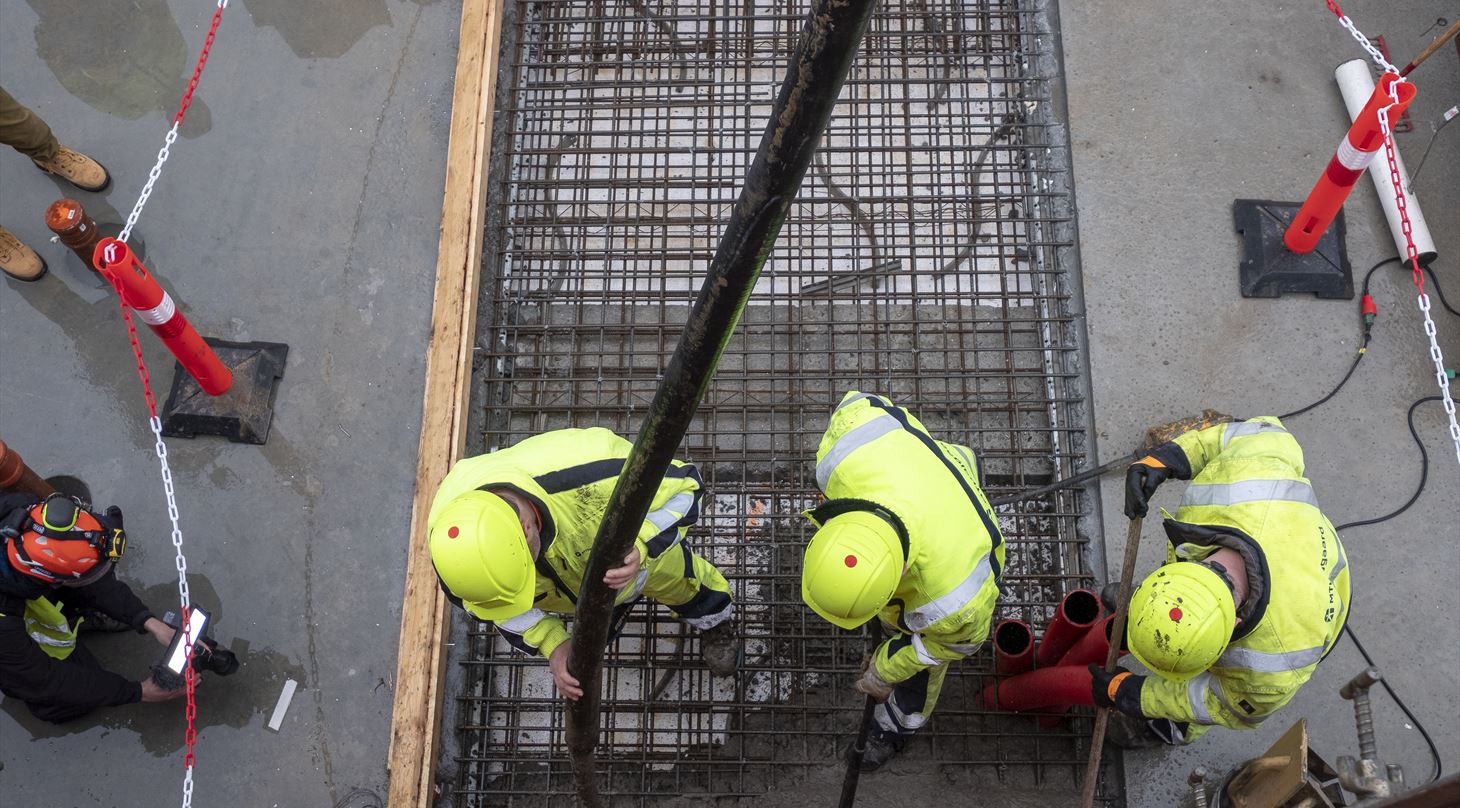
CALLISTE - Development of cement with reduced carbon footprint
Project start October 2020. Expected completion April 2025.
Summary
The CO2-emissions from the cement production are estimated to approximately 5-8 % of the total CO2-emission globally. With society’s ever-increasing use of cement, it is therefore essential to develop solutions that will reduce the CO2 emission from cement production.
Limestone is the primary component in the production of cement, and more than 50% of the CO2-emmisions is due to the burning of limestone into so-called cement clinker – a process where CO2 is released from the limestone. The remaining part of the emission is due to the energy required in order to heat the cement kilns up to the needed high temperatures.
The only producer of cement in Denmark, Aalborg Portland, introduced a new cement in 2021, FUTURECEMTM, with a carbon footprint up to 30 percent lower than traditional cement. In the new type of cement, the reduced CO2-emission is obtained through the so-called FUTURECEMTM technology. The technology substitutes the cement clinker with a combination of calcined clay and limestone. FUTURECEMTM-cement is primarily developed for use in ready-mixed concrete, but the ambition of the CALLISTE-project is to further develop FUTURECEMTM, such that the requirements in all fields of application regarding concrete are covered even better, as well as achieving an even greater CO2-reduction.
Objective
The objective of the project is to:
- Develop a cement with a high early strength and hereby optimize the applicability in the production of precast concrete elements and concrete products (such as paving stones). These types of products constitute approximately 50% of the Danish concrete market.
- Develop a cement with up to 50% clinker substitution with calcined clay and limestone. A sub goal of the project is to deliver the required documentation in order to get approval of such a type of cement in the Danish standards.
In order to fulfill the objectives, it is necessary to deal with some technical challenges, which is particularly relevant when cement with a high content of calcined clay are used in concrete production. These are mainly challenges regarding durability - frost resistance in particular - and workability as well as a lower strength development early on. This knowledge is based on experiences from previous Danish and foreign research project, which work CALLISTE will continue. Therefore, the project focuses on research on exactly these fields.
Furthermore, part of the development work of the project is to test the new cement on an industrial scale at the participating concrete manufacturers as well as testing the cement in a series of full-scale demonstration projects. These activities will ensure that the cement can be used in reality.
The project is partially financed by Innovation Fund Denmark in the Grand Solutions-program.
Participants
- Danish Technological institute (project manager)
- Aalborg Portland A/S
- Technical University of Munich (TUM)
- Aarhus University (AU)
- Technical University of Denmark (DTU)
- Unicon A/S
- CHR Concrete A/S
- IBF A/S
- Femern A/S
- FB Gruppen A/S
- Danish Road Directorate
- Dansk Beton
Dissemination:
Further information about the project can be found here (In Danish):